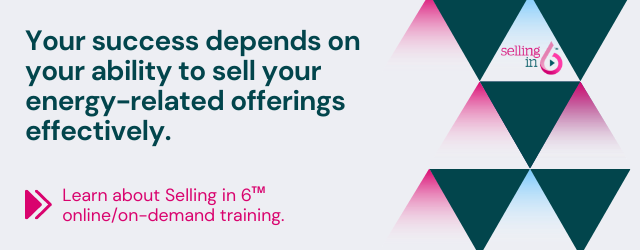“Is what you’re doing now working?” This is one of my first questions I ask struggling salespeople. If it isn’t, then a change might do you some good. Here are sales habits that I recommend breaking as soon as possible.

Lacking organization. If you’re using multiple legal pads, notebooks and Post-It’s to keep track of your sales, it’s going to be overwhelming and nearly impossible to keep on top of things. I would recommend consolidating all of those data points into a CRM.
Lacking focus. If you aren’t planning out your days and prioritizing urgent tasks, you’re going to fall behind or waste time deciding what to tackle next.
Lacking documentation. How are you going to keep track of your progress or sales receipts if there isn’t any evidence to back it up? Make sure that you have a system that makes these things easy to find.
Using the “relationship builder” approach. You might figure that providing free services, buying dinners, and going along for golfing or fishing trips will ingratiate you with your prospects. It may position you as a “friend” but not necessarily as the expert your prospect can depend on or trust.
Focusing too much on sales targets. Depending on forecasts to shape your plans can be a problem. Take a tip (pun intended) from the restaurant industry: the best waiters and waitresses aren’t the ones who count their tips in the middle of a shift. Their main concern is staying focused on their work and doing a good job.
Not taking the time to understand your prospect’s market segment. Research, research, research. That’s the key. The more you know about your prospect’s priorities and challenges, the better. What’s more, you need to reframe your solution so that its benefits can be measured with your prospect’s yardsticks.
Not knowing and communicating your prospect’s most compelling “why.” Remember that people make emotional decisions and justify them financially. The emotions are tied with their “why”... the reasons that a product or service would be beneficial to them. If this isn’t a part of the conversation, then they won’t be moved to take action.
Placing too much focus on rebates or incentives. These are supposed to seal the deal, right? In some cases, yes, but you don’t want the tail wagging the dog. Rebates can be enabling for prospects who can’t afford a higher level of efficiency without some financial assistance. However, they shouldn’t be as compelling as the core values of a proposed measure.
Offering free audits and focusing on lowest price. This not only diminishes your position but can also leave you vulnerable to being taken advantage of. There are plenty of prospects who like the idea of getting audits for free but never put those reports to use. On a similar note, being the lowest-priced offering in the market is underselling yourself. If you have quality offerings and impeccable service, why should your solution cost less?
Falling short on follow-through. The sale isn’t over once money has been exchanged. It’s always a good idea to circle back, verify customer satisfaction, and collect feedback. You might discover that your customer is enjoying unexpected benefits if you ask the right questions, which would not only give you another entry for your Success Story Archive™, but also set the stage for asking for referrals and/or expanding the scope at that customer’s facility.
Ignoring the sales potential at the account level. Maybe you’re just accepting an order and getting it done, then getting out. If you had a more thoughtful and comprehensive conversation with your prospect while on-site, you might open the door to more sales – think expanding the solution to include their other divisions, referrals they might offer if asked, etc.
Spending too much time on customer support instead of new opportunities. It’s easier to support existing customers because there is very little chance of rejection. But people need to move away from doing customer service only. There are other opportunities out there. Make time to pursue them!
Spending too much time on small opportunities. If that’s all you’re doing, then you’ll quickly lose bandwidth trying to make your sales goals with only small wins. It pays to go after the bigger fish.
Not taking the time to identify all the prospect's needs prior to recommending a solution. Listening will get you further than talking, and you don’t want to be seen as a salesperson with a one-track mind. Look at every opportunity from multiple angles, ensuring that you are providing your prospects with everything they might need.







